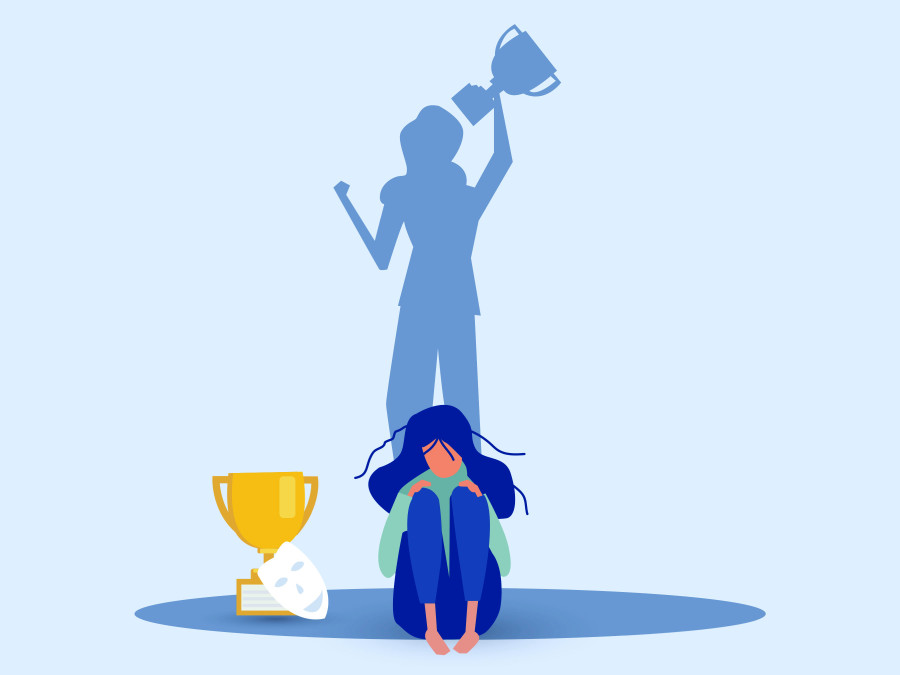Culture & Lifestyle
Navigating self-doubt
Instead of running away from a disheartening experience, we can always choose to take a moment to question why we are not able to stand up for ourselves.
Dristy Moktan
Let’s pause and think about what happens when things don’t go as planned. Do we feel a weight in our hearts? Do we question if we made a mistake? Do doubts creep in?
Does this sound familiar?
Our minds are bustling with thoughts, with an average person having about 12,000 to 60,000 thoughts per day! Positive thoughts can uplift us and bring immediate happiness, while negative thoughts can pull us down, leaving us feeling low. It’s natural for thoughts to come and go, like clouds drifting in the sky. However, when we find ourselves stuck in negative thoughts, it might seem like an endless loop. Eventually, these thoughts can take charge, shaping our behaviour and influencing our decisions.
Many times in life, we encounter situations where we realise that our actions are right and necessary. Yet, there are instances when we agree with someone else’s perspective, casting doubt on our own choices. This is a common experience that we’ve all faced at some point.
It’s natural for people to have moments of self-doubt. It’s part of our human nature. However, when these self-critical questions become overwhelming, leading us to question every decision and seek validation from others, it’s important to explore the underlying causes.
Often, our self-doubts and insecurities trace back to our childhood, where we learned specific behaviours to please those around us. Consider your childhood—did you not adjust your behaviour to make your parents or loved ones happy? As we grow, we might not be aware, but we could still be acting in ways that aim to please others. So, when we deviate from these learned behaviours, it can feel unfamiliar and may cause doubts about our ability to make the right choices for ourselves.
Speaking about childhood, our self-doubt can be linked to how we were treated during that time. If we were repeatedly told we weren’t good enough or faced criticism for our actions, it can contribute to self-doubt in adulthood.
Childhood has a significant impact on our lives, as do the actions of our caregivers. It’s quite likely that our self-doubt is a reflection of the behaviour we observed in our caregivers while growing up. For example, if a child sees a mother who doesn’t express emotions, doesn’t assert herself and consistently questions her own worth, the child may learn from these observations. They might adopt similar behaviours, leading to self-doubt in their decisions as adults. The influence inherited from our caregivers may hinder our ability to embrace our authentic selves fully. These unconscious lessons from childhood can persist into adulthood unless we reflect upon them, making it challenging to let go of them.
Self-doubt is a very powerful emotion. Most of us don’t realise how it is shaping our everyday experiences. Reflecting on the times when we have sabotaged our emotions could be an effective way to address it. We often want to forget situations in which our emotions were dismissed by others, which causes us to avoid reliving the same experience, and, as a result, we unknowingly dismiss our own emotions too. Instead of running away from a disheartening experience, we can always choose to take a moment to question why we are not able to stand up for ourselves. Why do we lack the confidence to do or say what we want? Asking these kinds of “why” questions can help us find the deep-rooted answers buried deep within us.
Another way to overcome self-doubt is to be mindful of our emotions. These days people have started categorising their emotions as good or bad, restricting themselves from truly feeling the emotions. For example, if we have labelled self-doubt as a “bad” emotion, we will make every effort to distract ourselves from that feeling of self-doubt. Why? Because it’s a bad emotion and will cause us pain. But what we don’t realise is that no emotion is bad. We must be aware of our emotions and welcome all of them, regardless of how challenging they may be for us. Otherwise, we might just bottle up our emotions, and that will only have a negative impact on our mental health and well-being. So, let’s allow our emotions to come and go at their own pace, and let us be more accepting and acknowledging of our authentic feelings rather than dismissing them.
Oftentimes, our self-doubt is connected to how we see ourselves, influenced by our upbringing or important life events, shaping an unconscious self-image. In such situations, it’s crucial to acknowledge that it’s okay to let go of the old version of ourselves tied to past experiences or certain situations. As adults, we can affirm our ability to assert ourselves, without feeling ashamed. Let’s be in control of our actions and empower ourselves to embrace the changing self-image that we’re shaping.




 22.12°C Kathmandu
22.12°C Kathmandu















